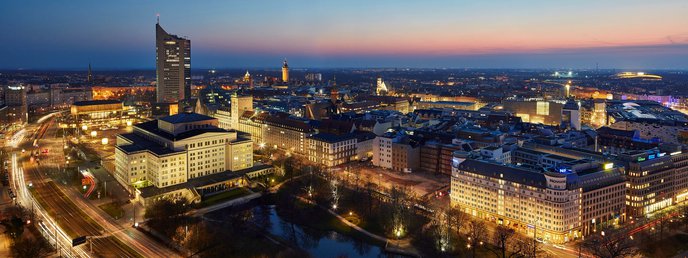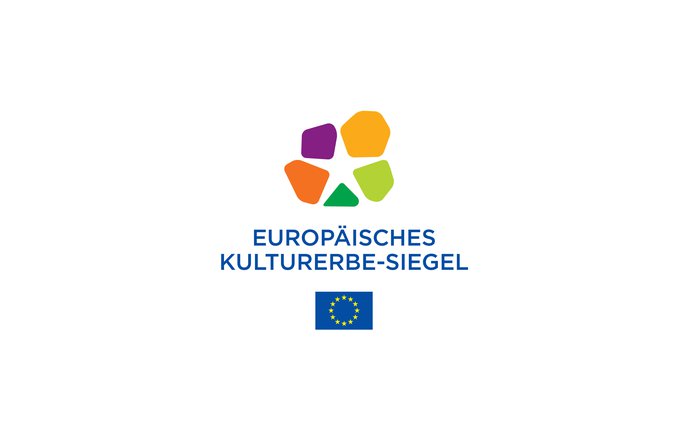Partners and friends
-
Leipzig, the city of music

View of the Opera, Gewandhaus and city centre of Leipzig. © PUNCTUM Music is always a mixture of tradition and zeitgeist.
Especially in Leipzig. The St. Thomas Choir of Leipzig,
founded in 1212, was decisively influenced in the
Baroque period by its most famous cantor, Johann Sebastian
Bach. At the time, no one suspected that this boys' choir
would still regularly perform his motets and cantatas in
St. Thomas Church more than 800 years later. Leipzig
offers further superlatives: The history of today's world-famous
Gewandhaus Orchestra began with the “Great Concert”,
founded by Leipzig citizens in 1743. The Leipzig Opera - the
third oldest music stage in Europe after Milan and
Hamburg - was founded already in 1693. The musical director of
the Gewandhaus Felix Mendelssohn Bartholdy founded the first
German conservatory in 1843. Clara and Robert Schumann,
Brahms and Mahler also worked here and created outstanding
works in music history. And visitors may follow the unique
“Leipziger Notenspur” (Leipzig Trail of Notes), which connects 23
places where famous composers lived and worked. These music
greats, unique music ensembles and events like the city's Music
Festival Days presented here make Leipzig what it is - a must for
music lovers!Leipzig Bach Festival 2022: 09/06 - 19/06/2022
Wagner 2022: 20/06 - 14/07/2022
Mendelssohn Festival Days: 31/10 - 06/11/2022
Mahler Festival 2023: 11/05 - 29/05/2023
-
European heritage label
The Label recognises European heritage sites that are milestones on the way to the creation of today's Europe. Spanning from the dawn of civilisation to the Europe we know today, these sites celebrate and symbolise European ideals, values, history, and integration.
On 5 December 2017, the European Commission declared that an independent jury nominated “Leipzigs Musikerbe-Stätten - Leipzig's Musical Heritage Sites” for the European Heritage Label. The Heritage Label was officially awarded in March and June 2018.
“Leipzigs Musikerbe-Stätten - Leipzig's Musical Heritage Sites” include St. Thomas and St. Nicholas Churches, St. Nicholas School, the Bach Archives, Mendelssohn House, the Felix Mendelssohn Bartholdy Academy of Music and Theatre, Schumann House, the C. F. Peters music publishing house building with the Grieg meeting centre, and the Leipzig Gewandhaus.
Click here to learn more.

-
Cultural memorial sites
The founding of the Conference on Cultural Memorial Sites in 2003 goes back to what is called the Blue Book, an evaluation study prepared on the initiative of the Federal Government Commissioner for Culture and the Media (BKM). The Blue Book summarises all nationally significant cultural institutions in the East German federal states. In addition to the Cultural Memorial Sites, this also includes the 23 Cultural Lighthouses – museums and institutions that are internationally recognised representatives of the national cultural heritage through their buildings, ensembles, collections, their subject matter or their activities. The Cultural Lighthouses have organised themselves in the Conference of National Cultural Institutions (KNK).
You can find more information about this here.
-
Association of Musicians’ Museums in Germany
The Association of Musicians’ Museums has been in existence in Germany since November 2005, with more than 40 museums from all over the Federal Republic having joined. The Association sees itself as a platform that enables the musicians’ museums to exchange content among themselves and to cooperate in the areas of marketing and public relations. Wherever it makes sense, the museums want to develop intensive media work in order to present Germany nationally, but also internationally, as a museum location and a country of music.
Click here to learn more.